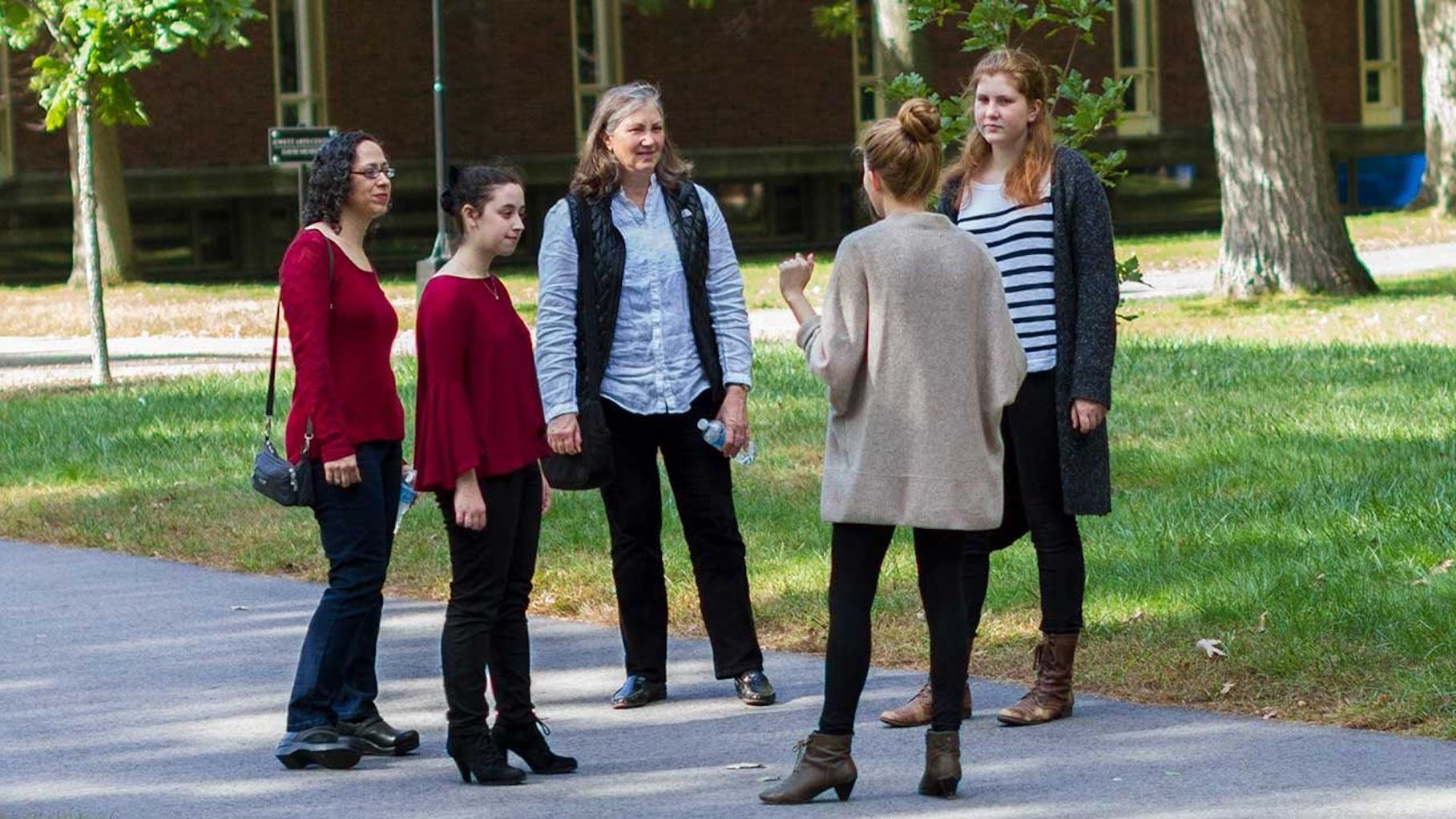Frequently Asked Questions
Wellesley College will continue to be test optional for those applying for entry in fall 2025. Since the introduction of test-optional practices at Wellesley, approximately 45% of our enrolling first-year students chose to apply without testing. As always, testing is just one part of our holistic, committee-based application review process. We review each applicant thoughtfully and within the context of their available resources. Regardless of an applicant’s decision to submit test scores, the admission committee is particularly interested in an applicant’s demonstrated writing and quantitative skills as key predictors for success in Wellesley’s curriculum.
The College will continue to assess the test-optional policy, and we will communicate updates for future application cycles as they become available.
Students can demonstrate their readiness for Wellesley’s writing requirements in the following ways:
- submitting an English or writing-based standardized test score (SAT, ACT, PSAT, Pre-ACT, AP, predicted IB or predicted A-level)
- showing achievement in English or writing at the honors or advanced level in high school
- reporting publications or awards received for creative or expository writing
The Quantitative Reasoning Program is designed to ensure that Wellesley College students are proficient in the use of mathematical, logical, and statistical problem-solving tools needed in today's increasingly quantitative world.
Students can demonstrate their readiness for Wellesley's quantitative requirements in the following ways:
- submitting a math-based standardized test score (SAT, ACT, PSAT, Pre-ACT, AP, or predicted IB or A-level results)
- showing achievement in math at the level of pre-calculus, calculus, or advanced high school statistics
- reporting participation or awards received in math competitions or extracurricular activities.
To ensure equity, all applications to Wellesley are reviewed by multiple readers, all submitted materials are considered, and admission decisions are made by committee. After the Office of Admission has compiled a docket of the most compelling candidates, the Deans of Admission engage the Committee on Admission and Financial Aid (AFA) in a conversation about institutional priorities and the College’s mission. The Deans then take guidance from the AFA back to the Office of Admission for use in finalizing all admission decisions.
We don’t require English proficiency testing, but we strongly recommend that international students whose native language is not English, and who have been studying in English-based curriculum for fewer than five years, take one of our approved English proficiency exams. See our FAQ for International applicants and English proficiency exams.
🏫 Register for a self-guided tour or in-person information session
💪 Attend Amplify, a virtual series is about empowering change and redefining leadership
👯 Sign up for AlumConnect to meet some of Wellesley's 35,000+ alumnae
🙊 Learn more through info sessions with Wellesley, Harvard, Princeton, University of Virginia, Yale, and the Sister Colleges
💬 Drop in on an informal student-to-student chat—no admission reps allowed!
🎥 Bookmark the awe-inspiring Wellesley Playlist
👟 Take a 360 virtual tour of our beautiful campus
💙 Peruse 100 marvelous things about Wellesley College
Resources for school counselors
Want to know more about the Class of 2027? Check out the Class of 2027 Profile.
